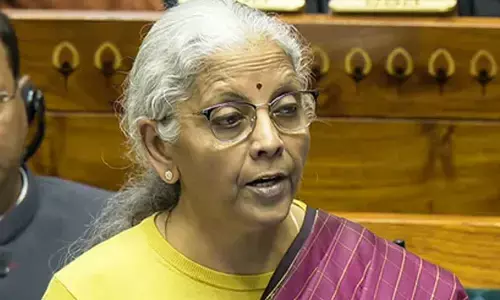Caring for all species is key to just transition

Our failure to invest sufficiently in caring for each other, other species and our environment is a root cause of climate change. We refer to this as the “care-climate nexus”. As the effects of climate change intensify, we will need to care for each other more than ever before, and we need systems to enable better care of our environment
Communities across the world are facing two worsening crises: a climate crisis and a care crisis.
The evidence and urgency on the climate crisis has been expertly illustrated by the Intergovernmental Panel on Climate Change (IPCC). The root cause of this crisis is the increase in greenhouse gases in the atmosphere. This is due to excessive exploitation of fossil fuels, deforestation and industrial processes. In short, it is a result of development processes that have not been based on caring for the environment.
Less discussed is the care crisis. This refers to a society’s capacity to maintain livelihoods in households, raise children and sustain communities. In short, the care crisis is a result of not investing enough in caring for each other.
Addressing these crises requires acknowledgement of the interdependency of people, other species and the physical environment. Our failure to invest sufficiently in caring for each other, other species and our environment is a root cause of climate change. We refer to this as the “care-climate nexus”. As the effects of climate change intensify, we will need to care for each other more than ever before, and we need systems to enable better care of our environment.
There is a growing discussion linking gender and climate change. However, the links between climate change and care have been largely under-researched.
The climate crisis stems, similarly to the care crisis, from an economic paradigm that undervalues care – both for each other and for our physical environment. The concept of care therefore can serve as a powerful focal point for understanding the climate challenge and for policies towards a sustainable and equitable future. This is the gap that the “care-climate nexus” project led by the Southern Centre for Inequality studies, in collaboration with the International Development Research Centre and a group of feminist economists and climate scientists from across the world, plans to fill.
The research project has two main objectives. First, to map the conceptual links between climate change and care.
Second, to inform and support policymakers to include care in climate policy. For example, significant investments in quality care that supports climate adaptation are as important as building resilient infrastructure and can reduce the burden on those who carry out care work. Climate policy that does not centre care risks replicating or even exacerbating structural inequalities.
Undervaluing care & nature
The climate and care crises have resulted from the undervaluing of two things – nature and care work. Indicators such as gross domestic product (GDP) place value on – and reward – unsustainable exploitation of natural resources. Too little – or no – value is placed on the natural environment. The consequences are proving dire. Continued exploitation of raw materials and natural resources has come at the expense of the environment. The undervaluing of nature has caused pollution, loss of habitats, extinction of species and declining biodiversity.
Climate change poses threats to food security, water accessibility, health and livelihoods, among many other impacts. Unpaid or under-paid tasks like providing food, collecting water and caring for the young, ill and elderly will be made more difficult by the impacts of climate change. As we have shown above, these tasks are often, but not exclusively, carried out by women. There is also a growing trend in the global North for this work to be outsourced to women immigrants and the working class.
Anchoring care in climate policy
It is possible for humans to contribute to the regeneration of the environment instead of its depletion. But this calls for a rethink: what we value and whether this is represented in our current economic systems and policies. The care-climate nexus conceptual framework makes two key arguments:
One is for an expansive view of care that goes beyond person-to-person care to include caring for the environment. Centering care in responding to the climate crisis requires understanding diverse meanings and articulations of care, that include understandings of care in different contexts from the global South. Second, care is not only a practical concern but also an ethical and political one. It involves recognising that everything we do to maintain, continue, and repair our world is significant and crucial for life on Earth.
A focus on care and climate change means understanding and addressing interconnected socio-economic challenges. These include: the impact of climate change on the provision of care; the protection of farm workers’ rights; the impact of the privatisation of public and social services on the provision of care; the growing privatisation of care services globally, like healthcare, and cuts in public expenditure on these vital services; addressing the fact that care work extends beyond domestic work and includes caring for nature, land and animals.
The central theme of the upcoming annual Conference of the Parties (COP) in November is climate finance. COP is a multilateral forum that deliberates on global climate policy: this is a crucial space to emphasise and put forward proposals for better resourced caring economies as a way to build climate resilience.
https://theconversation.com/














